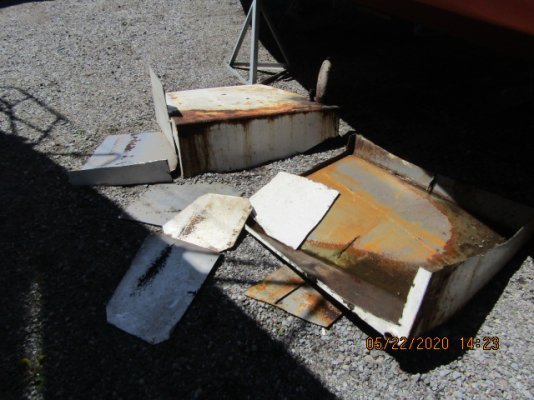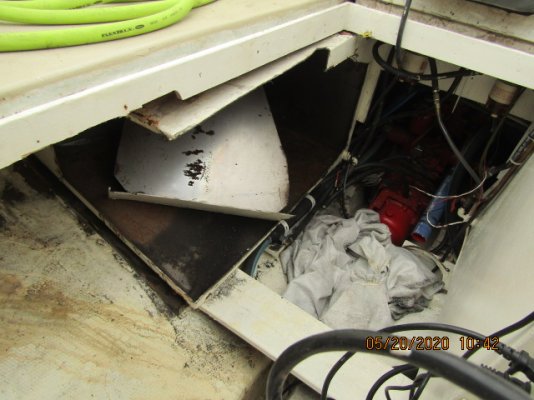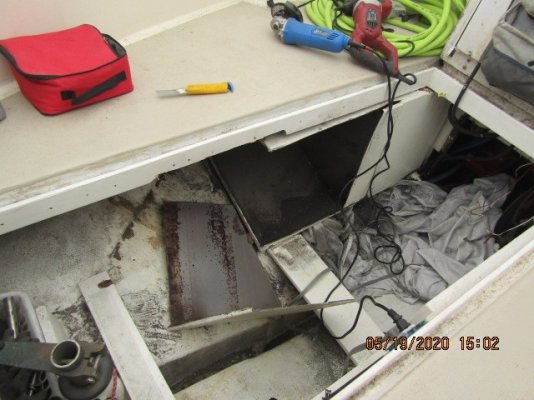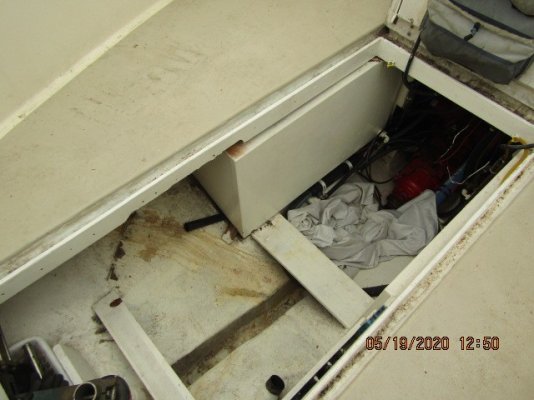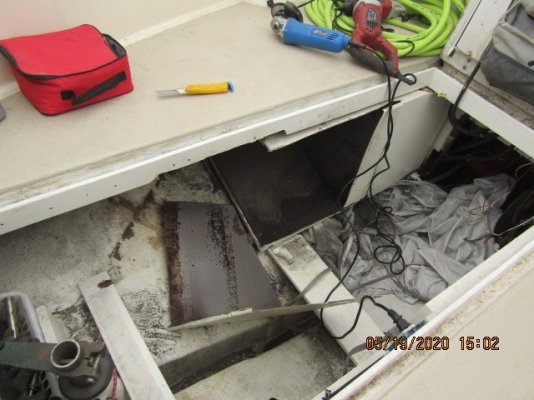The Dread Pirate Robert
Veteran Member
We just finished the survey and sea trial of our new to us 1987 Jefferson 42.
Other than some clamps needing to be replaced and a non functioning float switch the survey went well.
However the biggest issue was rust on the iron fuel tanks. We found some top and bottom. We cant tell the severity as they are enclosed behind sound barrier walls and only open at the site tube valves.
They may not be a problem now however they are not going to het any better during my ownership and will become a potential issue for the next owner.
What is this groups familiarity with changing out the tanks as far as process and potential cost? As well as difficulty.
Other than some clamps needing to be replaced and a non functioning float switch the survey went well.
However the biggest issue was rust on the iron fuel tanks. We found some top and bottom. We cant tell the severity as they are enclosed behind sound barrier walls and only open at the site tube valves.
They may not be a problem now however they are not going to het any better during my ownership and will become a potential issue for the next owner.
What is this groups familiarity with changing out the tanks as far as process and potential cost? As well as difficulty.

